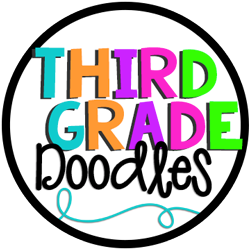This post addresses TWO of the Essential Practices for Early Literacy: Practice 3: Small Group Reading Instruction and Practice 9: Ongoing Observation and Assessment.
These practices were created by the Early Literacy Task Force, a subcommittee of the Michigan Association of Intermediate School Administrators (MAISA) General Education Leadership Network (GELN), which represents Michigan’s 56 Intermediate School Districts.
TARGETED INSTRUCTION
How well do you know your readers? Research has shown that the best reading instruction is differentiated to meet the needs of each reader in your classroom. If this is true, you MUST be able to determine what it is, exactly, that your students need in order to move forward in their reading development. But, how do you do that without spending tons of time assessing? The answer is formative assessments that assess the specific reading skills you are teaching in your Tier 1 instruction. GOOD formative assessments should be easy and quick to administer and should give you specific information about the specific reading skills a student has in place, and which ones they are ready to develop.ASSESSMENT OPTIONS THAT DON'T WORK
Many of you probably use diagnostic assessments such as NWEA (MAP) testing to determine which students are at-risk. You may also use a slightly more diagnostic tool like Fountas & Pinnell's BAS or DRA. These are valuable tools, but often do not give you the specific data that you need, or take SO LONG to administer its not practical to use as a formative assessment.WHAT TO DO?
When I begin thinking about how to differentiate instruction for my students, I really want to know two things: Can they DECODE grade-level text and can they COMPREHEND grade-level text. If the answer to either of these questions is no, then I want to dig a little deeper to determine what skills they may need to work on first.DECODING ASSESSMENTS
If a student is not decoding grade-level text, I would want to give them a Decoding Inventory, sometimes called a Phonics Survey. There are many of these out there and all do a pretty good job of determining which phonics skills a student needs to develop. My favorite tool is the CORE Phonics Survey. A quick google search will provide you with all the tools that you need to administer this assessment, but since it is copyright protected, I will not post it here. You can find the assessment in the book:
After administering this very quick assessment, you will know which phonics skills to address with each of your students (short vowels, blends, diagraphs, etc.). Once you have this information and you determine that your students may need an intervention, Sharon Walpole has some intervention resources that are very helpful. Also, Jan Richardson has some great lessons to incorporate into your guided reading lessons.
COMPREHENSION ASSESSMENTS
But what about comprehension?? It can be a challenge to determining where the comprehension of your students is breaking down. I find Jennifer Serravallo's Hierarchy of Reading Skills very helpful.
She has created a comprehension hierarchy for both fiction and non-fiction to make it easier to determine where to begin with students. For example, when working with fiction text, if students are proficient with basic "plot and setting" skills such as retelling, summarizing, determining the problem/solution, etc., that may be a good starting point for them. Maybe students are able to summarize and tell about the story, but they are not able to analyze characters by determining their traits, feelings, motivations, or how they change throughout the story. Then that is where you would begin your instruction. Eureka!! It makes so much sense!
So how do you formatively assess these finite comprehension skills? You simply have a conversation with your students and ask them some very pointed questions to determine their understanding of each component of the hierarchy. A starting point might be thinking about what you are teaching in your whole group instruction (units of study) and collect some baseline data to determine you students' level of understanding. For example, if you are currently teaching your character unit, you can just assess students on character analysis. I would, however, make sure that they are able to retell or summarize first, since this is a prerequisite skill. It would be easy enough to assess on both of those skills at the same time.
Here is how I did this with my class:
- Make sure you have an independent (or instructional) level text for each student that you wish to assess. I like to use the Reading A-Z books for this, since I can make a copy of the same book for each student at that level.
- Have students read the book independently (since it is an independent level text, you should not need to listen to them reading.)
- As students finish reading the text, you can call them over one at a time and ask them a series of questions to determine their understanding of the text. Your questions should be geared toward the skill you are assessing (i.e., plot and setting, character, etc.).
- Take notes to document your observations of each student. If collecting progress monitoring data, you can give them a numerical rubric score (1, 2 or 3). This information will help you to determine student goals and your next teaching moves.
I have created the following formative assessment tools, which include the prompting questions and a rubric for each skill. These are available for Grades 1-5 in my TPT Store and are available as individual sets or as a bundle.
WHAT DO DO NEXT
- Determine a student-centered goal.
- Form flexible strategy groups.
- Select strategies that will address the skills they are learning.
I like to either create my own strategy lessons or choose from the following amazing resources:
I will usually work with strategy groups for 2-3 weeks and then do another round of formative assessment to determine if students are learning the concepts, and to determine my next steps.
IN CLOSING
It is critical to determine what students need in order to deliver the most effective instruction. Assessing reading comprehension doesn't have to be hard, time-consuming or expensive. Ken Goodman used to talk about the importance of "kidwatching". If you spend time having authentic conversations with your students about their reading, either in one-to-one conferences or in small groups, you will become experts on what they need right now as readers.
If you want to know more about how to implement effective strategy group lessons, please visit my blog post: Guided Reading or Strategy Groups? What to know!
You may also like the following resources:
Thank you for visiting today. I hope you found this post helpful. Please feel free to leave your comments and/or questions below.



































No comments
Note: Only a member of this blog may post a comment.